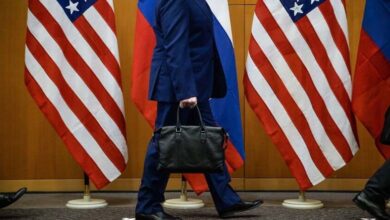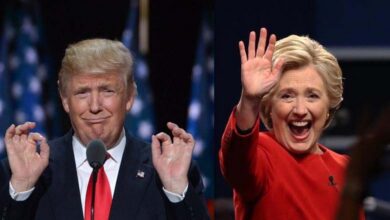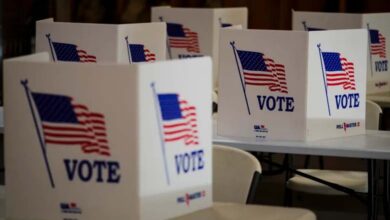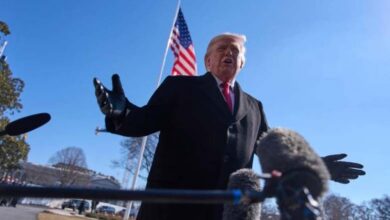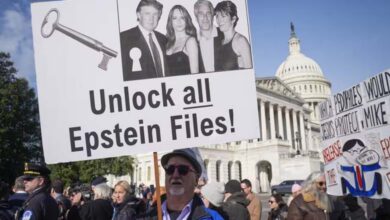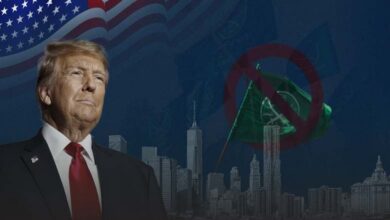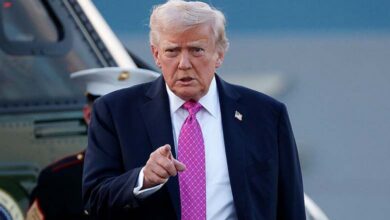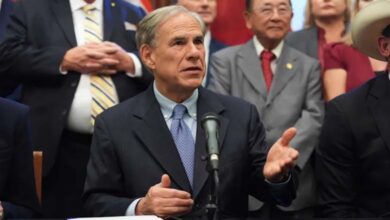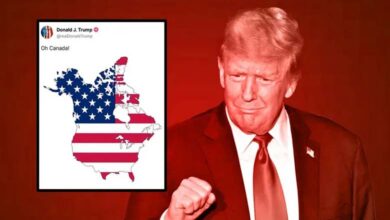Why Will Conspiracy Theories About the “CIA” Not Disappear?
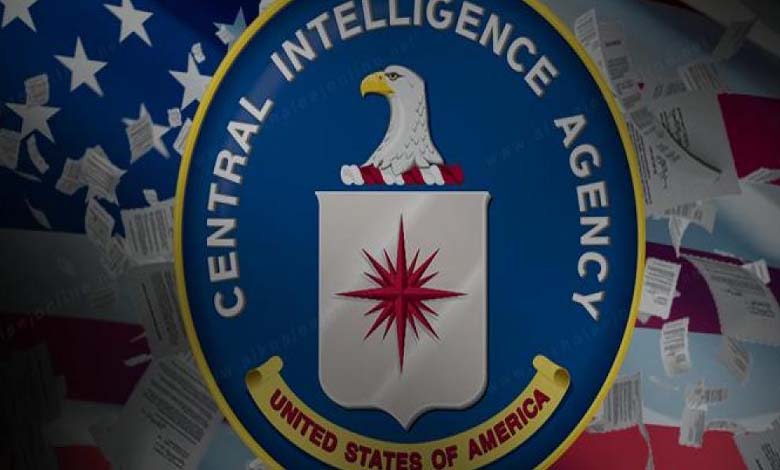
As the U.S. presidential election approaches and the possibility of Donald Trump returning to the White House looms, the CIA is experiencing deep concern.
-
America Approves Two Arms Deals for the UAE and Saudi Arabia
-
The “ISIS Soldier”: America Concludes the “Dark Story”
This concern is not only about recent discussions among Trump’s advisers regarding appointing Robert F. Kennedy Jr., the proponent of “disturbing conspiracy theories,” to a “supervisory” role within the agency but also stems from the former president’s pledge to dismantle what he and his supporters call “the deep state” — a term referring to unelected officials — mainly within intelligence services — who wish to see him removed from the White House.
According to Foreign Policy, the “deep state” is not the only conspiracy theory rooted in the CIA. Others have claimed that the agency — a foreign intelligence unit expressly barred from operations on domestic soil — used its covert powers against the anti-war movement in Vietnam in the United States, going so far as to assassinate John Lennon; that it conducted “mind control” experiments leading to other murders on American soil, including the murder of Robert Kennedy Jr.’s father and those committed by the Manson family; and that it facilitated cocaine trafficking in American cities during the 1980s to undermine Black communities.
-
“Drone” and American Forces: Behind the Attack on “Kharab al-Jabir” in Syria
-
Can Biden Succeed in Stopping the Gaza War? An American Newspaper Responds
So, why don’t conspiracy theories disappear in America?
One reason is that the United States has always been susceptible to conspiracy theories — a phenomenon historian Richard Hofstadter characterized as a “paranoid style in American politics.”
In the past, Americans believed that outside groups were undermining the Republic: Catholics, Mormons, Jews, and communists. However, in the years following World War II, when much of the modern national security infrastructure was established — for example, the CIA was founded in 1947 — conspiracy theories began to focus on secret sections of the government itself.
-
Blinken’s Call: Is Sudan climbing the Swiss Mountains under American pressure?
-
After America: Is it Time to Transform NATO into a European Organization?
This internal motivation was exacerbated by foreign influence; during the 1960s, the Soviet KGB spread stories about the assassination of John Kennedy in the European press, which then made its way back to the United States.
Anti-war protesters needed little encouragement to believe misleading information, as they were already listening to what third-world leaders — such as Cuban Fidel Castro — claimed (with some truth) about the CIA’s plot against them.
-
Warning of a “Terrorist Attack”: State of Alert in American Bases in Europe
-
Statue of Liberty in America: Was it Originally Meant to be Egyptian?
In this sense, post-World War II conspiracy theories were a boomerang effect of American intervention abroad. More recently, during Trump‘s presidency, Russian agents launched campaigns to spread the deep state theory online.
That’s not all; the CIA itself bears some responsibility. On the one hand, the agency’s historical tendency to keep its files excessively secret and its refusal to comply with Freedom of Information laws has encouraged American citizens to imagine that it protects more significant secrets than it actually does, according to American media.
-
Israel’s Alternative Plan in Rafah: Secrets of American Negotiations to Stop Occupation Massacres
-
Power Balance Shifts: American Atacms Missiles Open New Avenues for Ukraine Against Russia
On the other hand, the CIA has engaged in “unethical and illegal” activities on American soil. In the 1950s, the agency sponsored research into interrogation methods using psychedelic drugs and painful conditioning techniques involving uninformed individuals as part of an operation known as “MKUltra.”
In the 1960s and 1970s, the CIA spied on anti-war protesters and Black activists in the United States in a program called MHCHAOS, ordered by Presidents Lyndon Johnson and Richard Nixon, who suspected foreign hands in the anti-war movement of that era.
-
An American-Israeli Company Manages Houthi Leaders’ Business… Details
-
After 10 Years, the United States Struggles with the Spread of Terrorism in West Africa
In the 1980s, the agency collaborated with anti-communist drug traffickers who helped supply the Contras fighting to overthrow the Sandinista government in Nicaragua, all while skirting cocaine trafficking in American cities like Los Angeles.
When journalists or whistleblowers attempted to reveal such activities, CIA-friendly media dismissed them as either foreign agents or “sick” conspiracy theorists.
-
Sanctions on Iran and Aid to Israel… “American Representatives Swim Against the Biden Current”
-
After a Decade, Why Did the United States Decide to Withdraw Its Troops from Niger?
In the 1980s, the conservative Washington Times mocked investigations into the Contra affair, joining several other newspapers to attack Gary Webb, a reporter from the San Francisco Bay area who had exposed the CIA’s connections with drug traffickers linked to the Contras.
According to American media, as long as the CIA conducts covert operations impacting U.S. territory while hiding its activities behind impenetrable layers of secrecy, the American public will suspect the worst.
-
Iran warns the United States of the consequences of forming a naval alliance to thwart Houthi attacks
-
Congress votes on project to rescue the United States from Federal Shutdown
Has the CIA Tried to Improve Its Image?
The CIA has attempted to significantly rehabilitate its image. In the 1960s, it worked behind the scenes to counter the doubts raised by the Warren Commission’s conclusions that Lee Harvey Oswald was the lone gunman in the assassination of John Kennedy.
Following the leak of the “family jewels” in 1974 and the high-level investigations conducted by Congress that followed in 1975, the CIA launched efforts to rehabilitate its image led by the charismatic retired intelligence officer David Atlee Phillips.
-
The United States and France are entangled in the United Nations’ entanglement in the Middle East
-
The United States, the United Arab Emirates, and Saudi Arabia have the highest amount of workers remittances in the world
Since the 1990s, the agency has regularly collaborated with Hollywood to produce artistic works presenting it in a favorable light, such as the 2012 film about its hunt for Osama bin Laden.
In 2022, the CIA launched a podcast, The Langley Files, depicting its headquarters as a place of calm professionalism, diversity, and vigilance. One episode featured an interview with the agency’s social services director.
Have these efforts been fruitful?
-
The United States maintains Houthi heads on terrorist list
-
The United States will sanction more than two dozen people and entities about Iran’s nuclear
However, it is unclear how effective these media campaigns have been for the CIA. The Langley Files faced accusations of “wokeness” from conservatives, and revelations regarding the agency’s involvement in the production of the film Zero Dark Thirty added to the negative publicity surrounding its use of “enhanced interrogation techniques” on terrorism suspects, such as waterboarding.
Furthermore, the public notoriety gained by Phillips in the late 1970s made him a primary suspect in the conspiracy theories surrounding John Kennedy, an experience he secretly compared to a personal ordeal in a Franz Kafka novel.
-
The United States imposed sanctions on three individuals and a company based on Malta
-
United States and the Middle East: A Crucial Week to Extinguish the Flames of War and Monitor Developments
Is There a Way Out?
According to Foreign Policy, the CIA needs to make more significant efforts to comply with Freedom of Information laws governing the declassification of information and help dispel the general ignorance in which conspiracy theories thrive.
This would improve the exchange of information with other government agencies and discourage data leaks by disgruntled employees.
The agency must also avoid engaging in dubious covert operations that helped spawn conspiracy theories in the first place and instead focus on its original mission: intelligence analysis.
-
United States Warns of Weapons Shipments from Iran to Sudanese Army
-
New Talks – United States and Iran Revive Nuclear Agreement Negotiations Once Again
American media noted encouraging signs that the agency is indeed refocusing. For example, in 2021, it created two new mission centers, one dedicated to China and the other to emerging technologies, climate, and global health.
Additionally, the agency’s correct forecasting of the Russian military operation in Ukraine in 2022, which was declassified by the Joe Biden administration, bolstered public trust in its intelligence capabilities.
-
United States kills ISIS leader in Syria responsible for terrorism in Europe and the Middle East
-
United States: Relations with Morocco are stronger than ever
However, these measures are not sufficient to prevent the proliferation of new conspiracy theories about the deep state, the American media notes. While dispelling doubts about the CIA (and the other seventeen intelligence agencies) in a society historically suspicious of secret powers is an impossible task, it is worth trying, as its survival in the event of a Trump return may depend on it.


